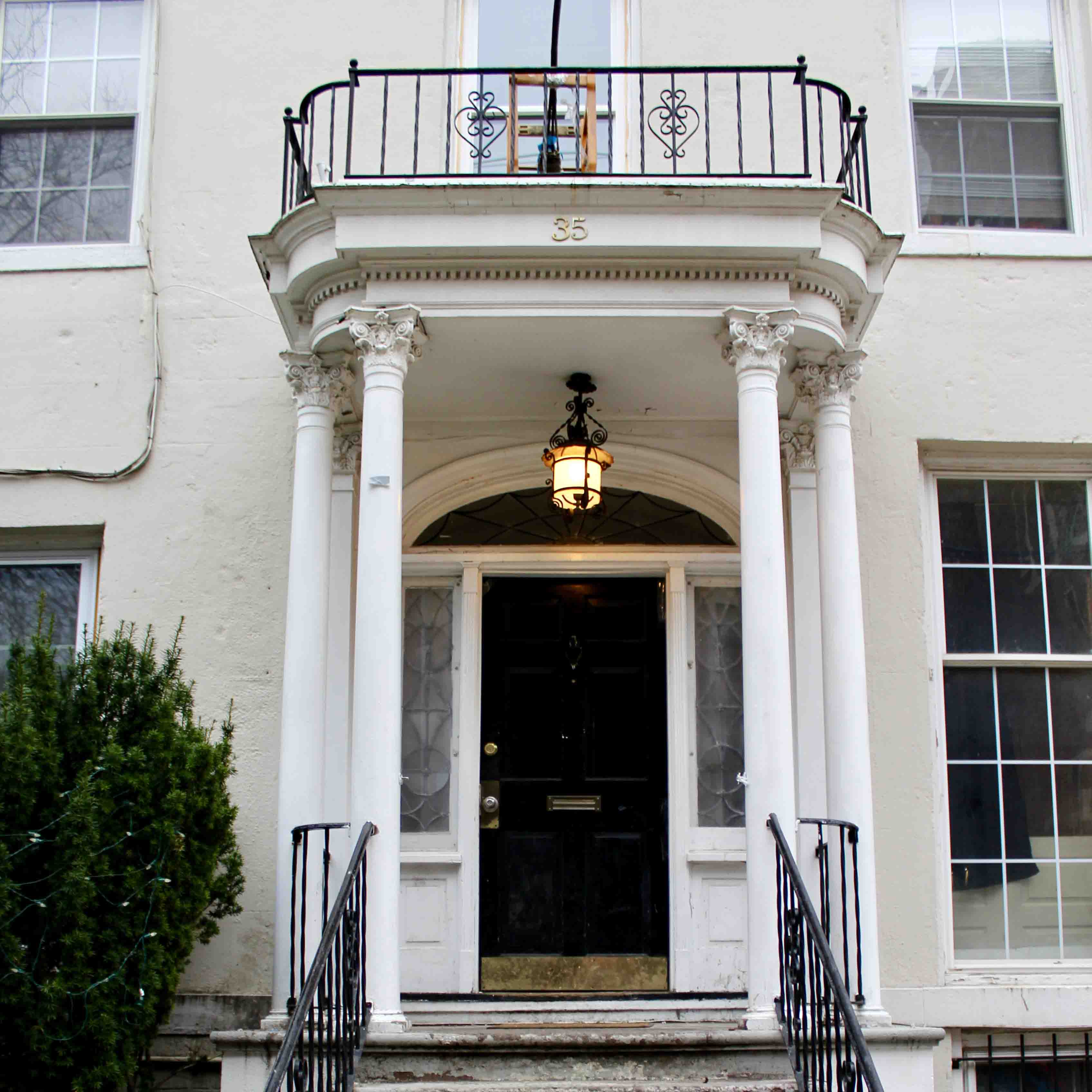
In a Facebook post published Monday night, members of LEO, a Yale fraternity formerly affiliated with Sigma Alpha Epsilon, denied allegations made by a Southern Connecticut State University student, Alexys Barrett, that she and her friends were turned away from a Saturday night party on the basis of race.
Associate Vice President of Student Life Burgwell Howard said he met with LEO members on Monday and now plans to investigate the allegations against the fraternity.
“The students I met with are very distressed by these allegations and wanted to do all they could to clarify things with the person who posted the item online, but also with the Yale community and their membership,” Howard said. “I am reaching out to all parties to better understand what happened, their perspectives and to see if things can be resolved or if any restorative action may need to be taken.”
In a Facebook post describing the incident, Barrett said she tried to enter LEO after a friend, James Ward Jr., told her he believed he had been turned away minutes earlier because of his race. Barrett said she was told by “two guys” at the door that the fraternity was shutting down for the night and not letting anyone else in. As she walked away, Barrett said, she saw a group of “white young men” who were allowed to enter the house after they were asked to show their IDs. Then, she said, she called in a noise complaint to the police, and told the officer who showed up that she had been denied entrance because of her race.
In its own Facebook post on Monday, LEO members denied that the doormen turned students away on the basis of race. LEO’s door policy is to allow entry only to students who have Yale IDs or are accompanied by students with Yale IDs, the post said.
But in an interview with the News on Tuesday night, Barrett said the doorman at LEO never asked her for ID.
“He said that they only allow students inside that have Yale IDs or are accompanied by someone with a Yale ID, which is fine if that is what they were actually practicing that night,” she said. “But they did not ask me for an ID. They just turned me away.”
Claudia Roach, who was with Barrett in front of LEO on Saturday night, said the LEO doormen “were picking and choosing who to ask IDs from” on the basis of race and turned away people of color from their party without asking them for student IDs. Ward Jr. told the News he gave up on entering the party when he saw a large group of white people let in without having to show their student IDs, shortly after he’d been told he could not enter LEO unless he had a student ID or was accompanied by a Yale student.
“One of the [doormen] whispered to another guy that they might as well ‘just let him in, he’s fine’ but then the other kid turned around to me and said, you need to have a Yale ID or we can’t let you in,” Ward Jr. said. “But then everybody else after me, pretty much white guys, didn’t really need to take their IDs out, they just let them in.”
Ian Reid ’19, the president of LEO, said he firmly believes that every visitor that night, including Barrett, was asked to show an ID. But since the police had come to the LEO house earlier in the night to respond to a separate noise complaint, Reid said, Barrett may also have been told the party was dying down.
The post has garnered more than 480 reactions, primarily from New Haven residents and members of the SCSU community. Still, three SCSU students interviewed said they had not heard about the incident. One of the three, Elise Ryan, said she has friends who attend parties at Yale fraternities but has never heard about discrimination at those parties.
Several Yale students interviewed defended LEO, arguing that the fraternity is a welcoming place for students of color.
“From my perspective as a student of Yale from Kenya, I personally have never felt uncomfortable at LEO and was there inside the frat on the night of the incident,” Makena Ithau ’20 said.
Mike Faucher ’19, who is gay and serves as one of the fraternity’s three social chairs, said that during his time at LEO, the fraternity has held itself “to a high standard of acceptance and diversity of all kinds.”
“The spirit of the fraternity is not exclusionary, and that is reflected in our brotherhood and the Yale students who attend our events,” Faucher said. “I can say forcefully and unequivocally that there is no toleration of any kind for discrimination based on race, gender or sexual orientation.”
Still, other students interviewed were more convinced by Barrett’s allegations. Anna McNeil ’20 said that, as a black woman, she has never thought of LEO as a “welcoming environment.”
“Would it surprise me to learn that Leo brothers turned away black women from their party? No,” McNeil said. “For a group such as Leo whose most basic membership practice is to exclude women, discriminatory practices are far from unfamiliar.”
In 2015, when LEO was still affiliated with the national SAE organization, a visiting Columbia University student accused the fraternity of holding a “white girls only” party on Halloween. The fraternity denied the allegations, and a subsequent investigation by the Yale College Dean’s Office did not find any evidence of “systematic discrimination against people of color.” But the episode helped spark months of racially charged protests on Yale’s campus.
Since the fraternity dissociated from the national SAE organization in 2016, it has taken steps to improve its diversity and inclusivity, Reid said.
LEO’s house is located on 35 High St.
Britton O’Daly | britton.odaly@yale.edu
Isabel Bysiewicz | isabel.bysiewicz@yale.edu







